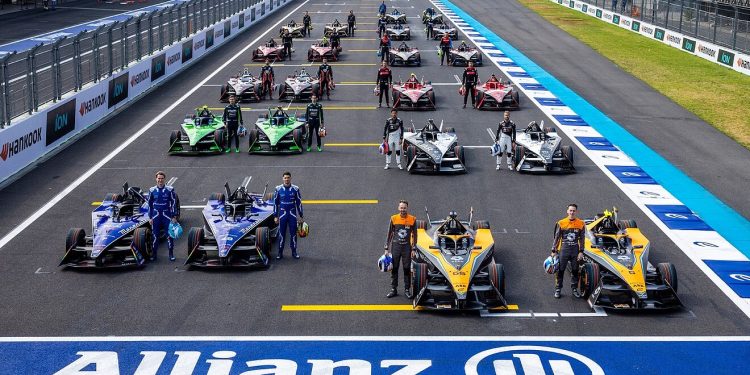Zero-emission motorsport is experiencing significant growth due to its great contribution to the environment, sustainable legacy in the regions they visit and useful technological breakthroughs for the automotive industry and urban transport.
The key role that sport can play in addressing the climate and biodiversity crises is to engage and influence fans and society at large towards positive behavioral change.
On this subject, the secondSustainable Championships Index™report was published, which provides an assessment of competitions and their environmental contribution. The report highlights best practices.
Formula E Leadership
Built on a foundation of sustainability, ABB FIA Formula E demonstrated an impressive performance to lead the ranking for the second consecutive year.
The championship’s approach to leveraging the motorsport platform to accelerate and amplify the race for global sustainability, combined with its tangible actions to reduce emissions, gives them a top ranking among motorsport.
Formula E’s sustainability approach is comprehensive in ensuring it meets the goals and objectives in all areas of the ESG framework. For example, in 2022, it launched several high-impact initiatives aimed at fulfilling its vision to lead the shift to an electric future.
Read also:Sao Paulo Met Formula E’s Expectations
London Summit
The sustainability report details the impact of the London E-Prix, which took place in July 2022, where the “Accelerated Change Summit Live” was unveiled.
The event brought together experts from motorsports, sustainability, politics, education, among others. In the British capital, they discussed how technology leaders and global decision-makers are using the unique power of motorsport to pioneer sustainable innovation and contribute to sustainable human progress.
The report also highlights the role of Formula E in hosting a panel conversation at Austin’s famed South by Southwest® festival. The session featured several representative championships, as well as a spokesperson from ABB and American-Swedish.
In addition, in July 2022, the championship, in collaboration with its partner charity UNICEF, launched a campaign with a purpose to highlight the impact that air and pollution has on children” to raise awareness and drive action to improve it.
The importance of the agencies
The Fédération Internationale de l’Automobile (FIA) has played a key role in these developments. From 2009, the governing body began calculating Formula 1’s carbon footprint, to the early stages of developing Environmental Accreditation in 2011 and the establishment of the FIA Environment and Sustainability Commission in 2019.
As for the Fédération Internationale de Motocyclisme, it has championed sustainability for even longer, publishing its first Environmental Code in 1994, almost three decades ago.



















